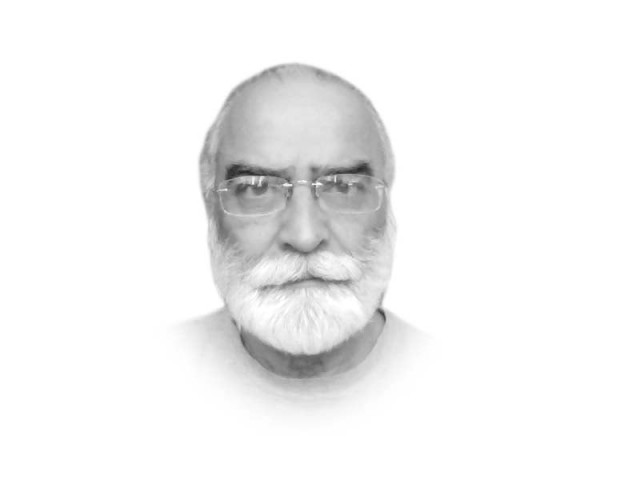When real estate captures power
A global real estate tycoon is being elected president of the USA

The writer is a social activist and the National Coordinator for Pattan Development Organisation.
The views expressed are his own. He tweets @BariSarwra
Just consider this. Last month Justice Faisal Arab of the Supreme Court of Pakistan issued a landmark decision. The story goes like this. On 22 October a diligent Returning Officer in Muzaffargarh rejects nomination paper of one Malik Abid Hussain because he does not qualify to contest local government election against reserved seat for ‘worker’, as he does not fulfil legal requirement. He not only runs a business but also is a president of a traders association. He files a petition in the Lahore High Court. The Lahore High Court’s Multan bench rejects his petition. That does not deter him. He goes to the Supreme Court but fails to get any relief.
The Supreme Court verdict says, since the petitioner did not deny his status of being a businessman, he can’t arrogate to himself the status of a ‘worker’ as defined in the Punjab Local Government Act 2013.
Pattan Development Organisation with whom I am associated investigated professions of Islamabad Capital Territory Local Government councillors who had contested election against peasant and workers quota seats. We conducted face-to-face interviews with the councillors. With their permission our surveyors took photographs of their houses and business premises. We did not rely just on our survey. Like general elections, contesting candidates for local council elections too fill nomination and assets declaration forms. We requested the Election Commission for the copies of these forms. Except one all Returning Officers willingly provided signed copies of the forms — II [A] & [C]. We are indeed deeply grateful to the ECP for this cooperation. Unlike the Punjab, the ICT local election nomination form for reserved categories of seats has the column to enter occupation.
Like Malik Abid Hussain, the peasant/worker councillors of ICT deserve some appreciation for not hiding their real occupation. But ROs do deserve some reprimand as they let the wrong persons to contest the election. To our amazement only 11 per cent of the councillors were likely to be peasant/workers, while as many as 53 per cent wrote property dealer/business as occupation on their nomination form.
Gender, religious, sectarian and caste based discrimination is widespread in our society but our constitution largely abhors it. Every citizen is equal in the eyes of our law. It is fair to demand of the Supreme Court to disqualify at least all those who have stated on their nomination forms other than the peasant or worker including a deputy mayor of the Islamabad Metropolitan Corporation who first grabbed a peasant seat of a union council fraudulently. Like Malik Abid Hussain, they too qualify for disqualification.
On December 3, local councillors elected on reserved seats took oath in Punjab. I have no doubt that most of the peasant/worker seats are being captured by real estate business in the Punjab too. This blatant violation with complete impunity kills the rationale behind the reservation of quota for the marginalised segments of society.
Isn’t it intriguing that real estate has so much fascination for political power or vice versa? I think it’s primordial. For centuries and still land and political power remain two sides of the same coin particularly in our part of the world. But, it is reemerging in the west too. From the United States to Italy political power has strong instinct for real estate. In the western world it is still an aberration while in our region it is a norm.
Despite having ‘strong’ accountability mechanisms, when a businessman captures political power, no one can stop him from corruption. Italy suffered heavily when a business tycoon Mr Silvio Berlusconi ruled the country for nine years. During this his assets increased to $12 billion and now dropped to just $5.6 billion. Isn’t it fascinating — in our country too assets of the Sharif dynasty soared manifold since 1985 when they first came to power.
This model spread like a virus in Pakistan. A short explanation. As the population increases, urbanisation process accelerates. And land prices in peri urban areas soar as well. Resultantly, the real estate business flourishes. We all know no land transaction can take place without Patwari — land record keeper. No one understands better than a property dealer the importance of the institution of Patwari. If you achieve political power at the local level you can assert influence over Patwari. Besides Patwari real estate dealer is perhaps the only one who deals with land transactions. He is very well informed about land system, ownership patterns and land disputes at the local level. Hence he is adequately skilful to manipulate land dealings. But, an ordinary property dealer can’t influence the Patwari. He has to capture political power. Once he achieves that, he can manipulate local development and he can grab land too, as he becomes part of the corrupt system.
The capture of political power by business creates serious ‘conflict of interest’. This evil must be nipped in the bud. Therefore, I humbly appeal to the Supreme Court to take action against all those who have grabbed quota seats of the poor peasants and workers. We need genuine peasants and workers in our local decision-making structures in order to keep a balance in our governance, which is already under a serious threat. If business interest is allowed to consolidate its political stranglehold at all levels of governance, marginalised people will be left with no hope. Act now.
Published in The Express Tribune, December 7th, 2016.
Like Opinion & Editorial on Facebook, follow @ETOpEd on Twitter to receive all updates on all our daily pieces.















COMMENTS
Comments are moderated and generally will be posted if they are on-topic and not abusive.
For more information, please see our Comments FAQ